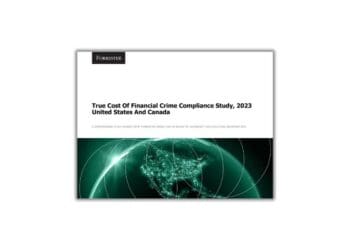In 1992, Mark Whitacre, a divisional president at ADM, began to cooperate with the FBI in their investigation into alleged price-fixing at the company. Before and during this period, he also embezzled millions from his employer. Whitacre provides multiple cautionary tales to young professionals looking to lead an ethical career.
It’s no coincidence Mark Whitacre has been the subject of two books, a documentary and a Hollywood film starring Matt Damon. His story of corruption, bravery, double- and triple-dealing is unlike any story before or since.
Mark Whitacre is the man who turned on his employer, Archer Daniels Midland Company (ADM), revealing what would become the biggest price-fixing case in American history. Every day for three years, Whitacre wore a wire for the FBI. He did this while perpetrating his own fraud, stealing $9 million right under the watchful eyes of the FBI. When confronted, Whitacre denied wrongdoing. He lost his immunity from prosecution, he lost his claim as a reformed hero and he paid for his crimes by serving nearly nine years in a federal penitentiary.
By all appearances, Whitacre is no longer the man he was 30 years ago when working for ADM. He tours the country, giving nearly 100 speeches a year to universities, corporations and church groups. After spending nearly a decade back in the C-Suite as COO of various companies, today he’s chief science officer at biotech firm Cypress Systems.
But as Whitacre emphasized in a series of interviews, his is not a story of redemption. It is the story of what not to do. In 1989, at the age of 32, Whitacre became the fourth-highest-ranking executive at ADM. At the time, ADM was the 56th largest company in the world, with over 30,000 employees. For the seven years Whitacre worked with ADM he averaged $3 million in annual compensation. There was talk of him becoming the next company president.
“People would drive by our home and say, ‘Mark Whitacre has it all’,” he recalls. Explaining why he risked so much, Whitacre speaks of a feeling of invincibility. “I felt like a rock star. I’d never failed,” he said. “It was all successes.” And so Whitacre thought he was too smart, too good, to be caught.
In retrospect, Whitacre says, his career advanced too quickly. He’d spent eight years in school looking toward the future, but his time at ADM was characterized by the 90-day increments in which earnings reports were released. To early professionals Whitacre advises this: “The long term consequence is not worth the short term gain. They may get a promotion or feel like they have X amount of money they wouldn’t have had, but the long term consequence [of unethical behavior] is not worth that.”
10 Things Mark Whitacre Would Have Done Differently
- Have a work-life balance.
- Know your value system.
- Adhere to the compliance program.
- Have an organizational purpose, rather than just pursuing shareholder value.
- Pursue ethical fitness: this means regular ethics training.
- Always do the right thing! No exceptions.
- Be accountable to yourself and others.
- Isolation is dangerous; surround yourself with trusted advisors.
- Always think long-term.
- Live your life assuming everything you do or say will be reported by the media.
The Anatomy of Fraud
There’s something in common, Whitacre says, among those who go on to commit malfeasance in their professional lives. It can be seen with politicians, with athletes, and movie stars: an aura of invincibility. And it will be seen again and again. “Fifty years from now the scandals are still going to happen,” Whitacre said. “The key is to not be one of them.”
Why does fraud occur? It turns out it’s not quite as simple as greed—though that can be part of the explanation. The rest of the explanation delves in human psychology, and for that we turn to the Story of the Bagel man.
The Story of the Bagel Man
As reported by Steven D. Levitt and Stephen J. Dubner in Freakonomics, economist Paul Feldman in 1984 decided he would quit his job and earn a living selling bagels. Every morning he would deliver bagels to corporate offices, along with a wooden box with a slot for consumers to pay for the bagels. Within a few years Feldman was delivering thousands of bagels to 140 companies.
But Feldman rarely bothered to attend to his bagel business. Instead, he would leave the bagels and payment box before moving on to the next location. Stealing a bagel or even the whole box of cash ought to have been easy.
Instead, most people paid for their bagels. Over the several-decade period that Feldman delivered bagels, 87 to 91 percent of people paid. On average, only one money box was stolen per year. Admittedly, the stakes were low in this scenario. But still, this natural experiment reveals three groups of people: those that paid fully, those that didn’t pay, and those that stole the entire box of money.
This accords with the truism that there are basically three types of people in the world: 1) the ethical champions who will avoid wrongdoing at all costs; 2) the wrongdoers who cannot resist the urge to lie, steal and cheat; and 3) those opportunists who will rather amorally do what it takes to get ahead. Most people fall into the third category. These opportunities will join the wrongdoers if that seems to pay best; and they will join the ethical champions if that’s the way to get ahead. In corporate settings, organizations can manage these opportunists by lifting the ethical champions to pride of place and pushing out the wrongdoers at the earliest opportunity.
The Fraud Triangle
The behavior of opportunists can also be understood by reference to the so-called fraud triangle, represents the conditions that drive fraud and other corporate malfeasance. Those conditions are: opportunity, pressure/incentive and rationalization.
Opportunity: Opportunity refers literally to the opportunity to commit wrongdoing. If the company does not have $1 million, there is no risk of fraud at that level. But what if there is abundant cash sitting in the corporate coffers? Organizational oversight is a start, but policies alone are insufficient. Managers, too, must actively engage with oversight activities, limiting employees in high-risk areas from operating with free rein.
Whatever the reason for the opportunity, reports suggest that most fraudsters did not look for opportunities to commit wrongdoing. Rather, an opportunity presented itself as a temptation. It’s sort of like putting a bowl of cookies in front of a child before dinner—though little Freddie may be able to resist, it’s a lot safer to lock the cookies in the cabinet. An effective compliance and ethics program goes far in locking away those cookies.
Pressure/Incentive: Where there is opportunity to commit a fraud, it is often paired with financial or other pressures. An alternative but related idea is that the incentives, the benefits of stealing, are simply irresistible. Maybe little Freddie missed lunch and can hear his stomach growling. He thus feels pressured to satisfy those hunger pangs, along with the incentive of enjoying a tasty cookie.
Financial pressure and debts are among the most cited drivers of fraud. Employees may have gambling problems or they may be deep in debt and on the verge of losing a home. They may be unable to offer financial help to children starting college, or may face a divorce that is dissolving hard-earned financial stability. These often-unexpected contingencies create pressures and increase the likelihood of wrongdoing.
Along with personal pressures, organizational and external pressures may also foster the temptation for wrongdoing. Maybe the boss set unrealistic budget expectations. Maybe the boss acts in fits of rage, with underperforming employees fired, thrown away, forgotten about. The risk of losing one’s position or not obtaining a promotion brings financial pressure, reputational pressure and ego effacement.
Pressures also come from third parties, such as pressures to meet debt repayment obligations, to maintain public listing requirements, or to maintain market position in the face of an aggressive competitor.
The amount of benefit to be gained also affects the likelihood of wrongdoing. Think back to the bagel experiment. In that case, the pressure and the incentive to steal was minimal because of the low cost of a bagel. But if, instead of bagels, Feldman sold computers on the honor system, would the number of cheaters stay quite so low?
Rationalization: Most all of us rationalize our bad actions. We find a justification, an explanation that warrants an exception. Fraudsters are not be any different from the rest of us, they just tend to be better at finding excuses.
For instance, fraudsters often rationalize that they will pay back any money stolen. Employees who face layoffs or downsizing may believe they deserve a golden parachute. Mark Whitacre noted that the impetus for his theft was the knowledge that he would soon be out of a job. He rationalized that he made $3 million per year and deserved a three-year severance package, so he would (and did) attempt to steal $9 million.
Employees may also take ethical cover in the belief that they have been wronged. Lost out on a promotion, or a raise? Go ahead and steal a little money; you probably deserved it. These fraudsters tell themselves that they work hard, and that they’re only stealing what they’re worth to the company; they tell themselves that everybody is doing it, and that nobody will be harmed by it. They tell themselves whatever they must, so long as their pockets are filled.
Bringing It All Together: The Robbin Hood of Goldman Sachs?
The fraud triangle holds that if even one of these conditions is missing, the wrongdoing will not occur. Organizations thus have ample opportunity to reduce wrongdoing by minimizing any one of opportunity, pressure/incentive, or by undercutting potential rationalizations.
Let’s then examine how each aspect of the fraud triangle comes together in a real-world case.
In the early 2000’s, a secretary to Goldman Sachs executives stole about $7.4 million by withdrawing money directly from her bosses’ personal bank accounts. Her bosses were so rich, as it happened, that it took them years to notice the deficiencies. Asked why she stole the money, she responded: “Because it was easy” (opportunity). For her illegal conduct, this modestly paid secretary obtained millions of dollars and purchased big toys that others might only dream of (pressure/incentive). And the fraudster seemed to imply that her bosses’ had all the money they needed, and that in giving money to friends and family her role was analogous to that of a Robin Hood figure (rationalization).
Fraud and corporate malfeasance involve complex factors and motivations. Understanding them can help us prevent and avoid scandals down the line.
This article is adapted from a chapter in Compliance Management: A How-To Guide for Executives, Lawyers and Other Compliance Professionals.



 Thomas J. Bussen (JD, MBA, DBA) is a professor of international business at the African Leadership University. He co-authored
Thomas J. Bussen (JD, MBA, DBA) is a professor of international business at the African Leadership University. He co-authored  Nitish Singh is a professor of international business at St. Louis University. He co-authored Compliance Management with Tom Bussen.
Nitish Singh is a professor of international business at St. Louis University. He co-authored Compliance Management with Tom Bussen.







